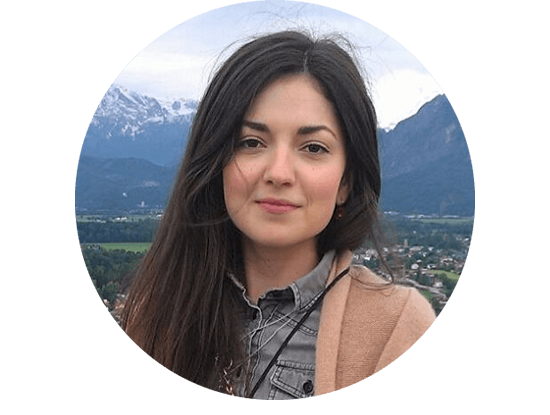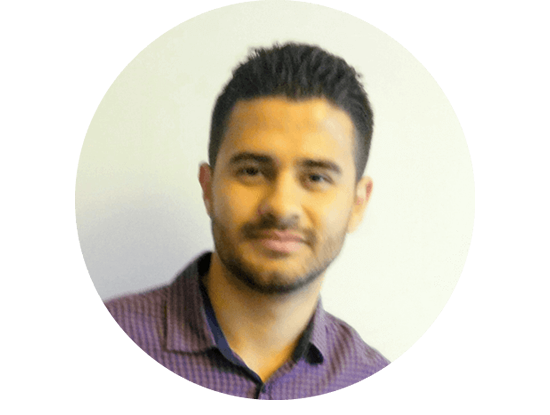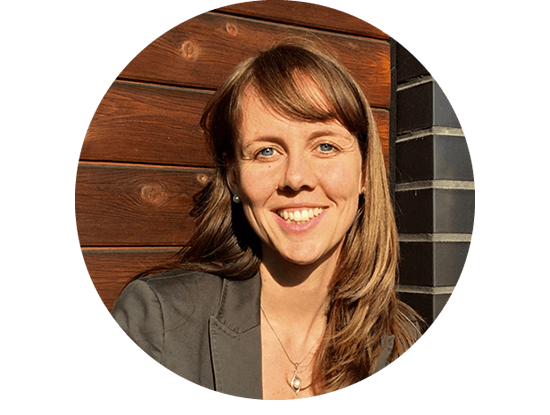Research Development Quality Starting Out Poland
At our strategic RDQ Technical Center in Wroclaw, Poland, we do our best to help new starters settle in as quickly as possible. Here we look at what this means through the eyes of a new starter, a buddy and a manager.
Wednesday, January 01, 2020
Marina Taran,
New StarterMarina completed an internship with Mondelēz International in Munich, before joining us as a Scientist 1 in Poland in January 2016.

Moving to Poland
I spent eight months as an intern in Munich. I loved working on the Philadelphia brand, but I’ve always had a passion for chocolate. So when a full-time Scientist 1 position working with chocolate became available in Poland, I grabbed the opportunity. My role in new product development involves leading small and medium-sized projects, conducting pilot plant and manufacturing trials, writing specifications of products and daily management tasks. I haven’t been here long but I’ve already had a hand in changing the chocolate mass of an existing product, which made me feel extremely proud.
Understanding the bigger picture
Although I already knew MDLZ, I still had a lot of catching up to do when I arrived in Poland. When you’re an intern, you tend to focus on your own area. But when you’re full time, you have to understand the bigger picture – and, of course, I was moving to a new product category. Fortunately, the induction plan was really well structured. In my first week, we were given a plant tour, HR provided information on benefits and Polish labor laws, and they explained the MDLZ values and really brought them to life.
Safety first
Safety is paramount at MDLZ and Hazard Analytics & Critical Control Points (HACCP) and Good Manufacturing Practices (GMP) training have been an integral part of my learning. Hazards in the products can be chemical, physical or microbiological and we have to be 100% sure that every product we make is safe for consumers.
Feeling at home
Being from Moldova, MDLZ has given me access to online Polish language training, but I’m still some way from being fluent. So I was really grateful for the help native Polish speakers gave me in searching for a house, especially when it came to signing contracts. I also got plenty of help with moving furniture and my other stuff. My manager has been brilliant too when I’ve had to arrange medical checks or go to the town hall with documents.
In it together
There were a number of non-Poles who joined on the same day as me. It can feel strange being in a new country so we started going out together after work and exploring the country at weekends. It’s easy making friends who are in the same situation as you, and it’s great to be able to share any concerns.
Favorite product?
Milka Collage, or Philadelphia Sensations. I can’t decide!
Eric Baizan
BuddyEric is a Scientist II, and is one of the first five to sign up for the buddy system which has recently been launched at our Wroclaw, Poland RDQ center.

Returning the favor
Why did I volunteer to be a buddy? I remember when I arrived here from Costa Rica so many people offered me help and support. Some were Polish while others were from Italy and The Philippines. Wherever they were from though, they all made living and working in a strange land so much easier. I like to help people and from that moment I decided to give something back. Even before we had a buddy system, I would offer new starters advice on where to eat, transport connections and so on.
A real commitment
You have to take buddying seriously. There are guidelines. It’s a bit like entering into a contract so you need to make the time, probably about four hours a week for the first couple of months. When a new starter arrives, you set up a meeting and introduce them to people. On the second day, you take them to the canteen for lunch, explain the procedures and who they should contact for specific issues. Then you take them to the city center where you can show them around and help them open a bank account, for instance, if they’re from overseas (which is the case for 30% of our new starters).
Offering personal and professional help
I would say that 80% of the help you give is personal and 20% professional. If the person is new to the area, you show them where to buy clothes, groceries or things for their apartment, where the local gym is and the nearest cashpoints. On the professional side, it’s really about explaining what the different functions do and how that person’s role fits in to everything.
It can turn into a friendship
It depends on the individuals whether you remain close after the initial two or three months. If you’re a buddy you should be naturally friendly, open and helpful. I think it makes a difference if the person you’re buddying is working in the same role or team as you – you keep the professional rapport going.
Making the most of a buddy
If you’re going to make the most of what your buddy can offer you, I’d say be willing to learn and have a positive attitude that this is going to work. It’s important to understand all the technology – it can open so many doors. And remember, your buddy is just one person. Make sure to seek advice from lots of different people!
Favorite product?
Difficult one. But I’d have to say Cadbury Dairy Milk with almonds.
Cathy Kermarrec
Consumer Scientist
Cathy is a Consumer Scientist who currently manages a team of three – although she’s hoping to add another new starter soon.

Answering all kinds of questions
Every new starter inevitably has questions. People who are a few moves into their career and have done the job before tend to ask who they should contact about a specific issue, or how we work at MDLZ. Those who are new to the business environment can ask anything: how do you lead a project… what is your job… what goes on in a particular function? It’s important to go through everything.
My role as a manager
As a manager, I stick closely to people when they arrive. I give them a whole range of guidance. I tell them about MDLZ and how we work, let them know who they’ll be interacting with and make sure they know about the buddy system. We’re a close-knit team and I’m trying to create an atmosphere where anyone can go to anyone else with any query they have. HR takes the lead during the induction, but I’m actively involved in setting the plan that the new recruit will follow.
Training on how to speak about biscuits
Consumer science is about understanding the consumer from a sensory perspective to ensure that product development is on target. I’m currently doing biscuits, both sweet and savory, and a lot of the training I arrange for new Consumer Scientists and Product Developers focuses on taste. It’s important that people understand the vocabulary we use to talk about taste. Which might sound easy, until you consider that we use over 60 adjectives to describe biscuits!
Reviewing progress
Every year we develop new goals for people. We have a half-term review in June or July and an annual review in December or January. We look at what the person achieved in the preceding months, and how they met their goals and development targets. But I also sit down with them between reviews to discuss what went well and not so well, how they can improve and whether there’s anything they want to work on. It all helps people track their progress and focuses on their development, which is really important in RDQ.
It goes both ways
I’m happy to help others – but believe me, the local Polish people I work with help me too. I’m from France and I’m always picking people’s brains about interesting things I can see and do – trips to the cinema or the mountains. It gives a sense of recognition both ways and that’s perfect with me.
Favorite product?
Côte d'Or (but maybe I should say belVita biscuits!).
Are you interested?
Search current vacancies with RDQ Wroclaw by clicking here and searching Keyword: R&D, Location: Poland.